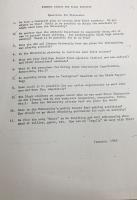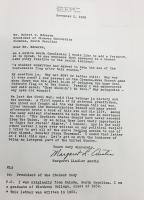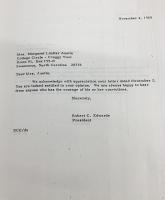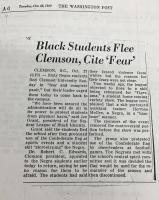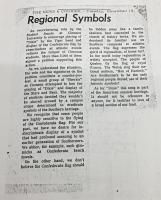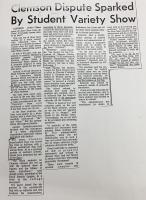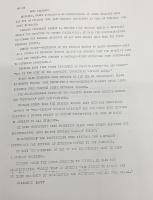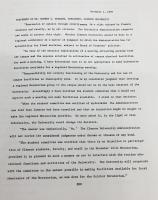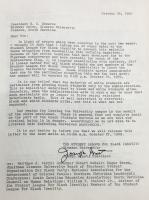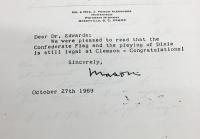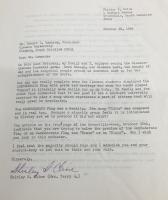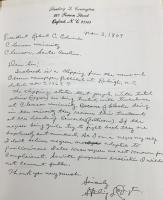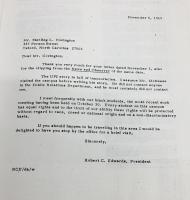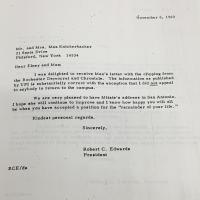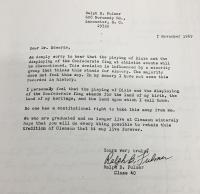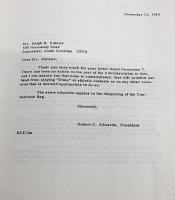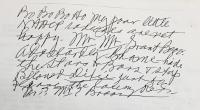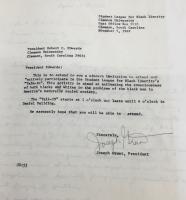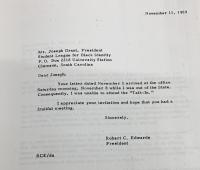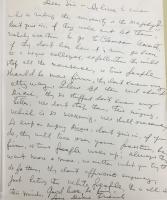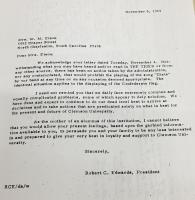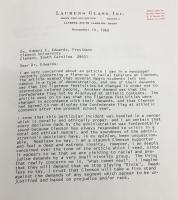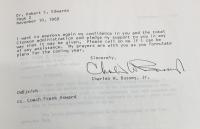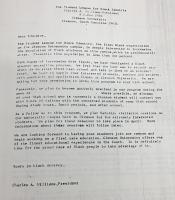A More Equal Gameday: President Edwards & the Student League For Black Identity
While the archives show little evidence of contention in regards to the African American athletes and musicians from the last two sections in particular, there is a significant amount of evidence showing that some members of the student body and more broadly the Clemson community were deeply concerned about certain other gameday issues.
In the late 1960s, the Student League for Black Identity began to advocate for a more inclusive environment on campus for African American students. One of their most controversial requests included the removal of the Confederate Flag from sporting events, and discontinuing the playing of "Dixie" by the Tiger Band. The Student League for Black Identity made multiple attempts to educate the Clemson administration about how these practices made Black students and fans uncomfortable, as well as why these practices were offensive. President Edwards, however, did very little to meet their requests or even make a compromise, choosing instead to side with the white majority who wished to keep these symbols of their "history and heritage." Though President Edwards never verbalized his own position or clearly stated his alliance with the white majority, it was clear by his silence what his opinion was. Edwards may be remembered as a strong ally who advocated for the admittance of African American students, but when it came to important issues, he fell silent, often ignoring the requests of African American students while at the same time enthusiastically thanking white alumni and fans who sent him letters in support of keeping "Dixie" and the Confederate Flag, and in one instance, responding in a very short and perturbed manner to a woman who had said she agreed with the Student League for Black Identity by telling her that she was "entitled to [her] opinion," but still continuing to do nothing about the issue.
Other issues came and went, with varying levels of severity, but the issues of "Dixie" and the Confederate Flag remained. At one point in late 1969, many African American students were reported to have actually fled campus due to racial tensions. This is supported both by multiple letters from members of the Student League for Black Identity to President Edwards and by letters from members of the white community taunting African American students for being afraid and feeling unsafe, as well as by news articles on the mass exodus.
Eventually, however, "Dixie" and the Confederate Flag were quietly removed from from the gameday repertoire, and African American students eventually returned to campus. Little information can be found in the archives about the discontinuation of these practices and the community's response, but Jerome V. Reel cites the end of these traditions as having been heavily influenced by band directors Bruce Cook and John Butler, and not the Student League for Black Identity. This discrepancy of information is hard to explain, except to say that it seems Clemson history does not wish to remember the plight of African American students and organizations like the Student League for Black Identity, despite their extensive advocacy for the discontinuation of these practices and the long paper trail which supports their contribution to their eventual discontinuation. Perhaps Butler and Cook did play a role. Perhaps they were the straw that broke the camel's back. Perhaps all it took was two white men in a position of authority to finally get the job done. Nevertheless, that should not discredit the Student League for Black Identity or their extensive efforts.
